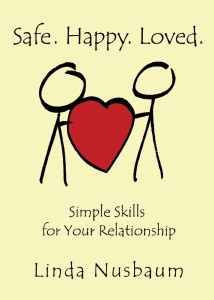I often work with couples that know exactly what is wrong in their relationship. This is a good thing. But sometime this knowledge brings challenges to most people when things are not going right. You see, most couples are doing their very best to find a better place with each other.
I believe that people who love each other try everything they know to make the relationship work. The partners will go from one thing to another in the hopes that the relationship will improve.
We Need To Communicate More Than Our Dislikes

Sadly, in many cases it does not. Here is one reason why. As humans, we are keen on noticing when we don’t like something. We are experts at identifying what is not working for us. And we are equally as efficient at calling our partner out when we are uncomfortable.
This is the way all of us are designed. When we don’t like something, we tell the other person, “Hey, don’t do that,” or we might yell out, “Stop that.” There are all kinds of ways we let our person know we don’t like what’s happening.
So, when a couple comes in after being uncomfortable and announcing the discomfort to their partner for a while, the one who has been vocal often looks astonished when they tell me what is wrong, because they can’t believe their partner doesn’t know what is happening to them.
They might even believe that the partner is ignoring their discomfort too.
Your Partner Can’t Give You What You Want, If They Don’t Know What That Is

But I assure you that is not happening. What is happening is that the partner is still doing those annoying things because he probably doesn’t really know what to do to make it better and now it’s a big problem.
But let’s back up. When we notice we are uncomfortable that’s our wiring talking, telling us to change what is happening. What we don’t realize, if we are the ones who complain about things, is that our partner can’t change something we don’t like, because they don’t know what we like.
I know it’s a subtle difference, but it means so much to the person who is listening to the discomfort. When we hear of someone’s discomfort we instantly know that they are unhappy. Unhappy in a mate means a whole lot of things if you are their partner. No one wants their partner to be unhappy. And yet every time someone complains about the way things are that’s exactly what you are transmitting to your mate. It’s as if you are telling them, “I am unhappy here.”
They Want to Make You Happy; You Just Have to Tell Them How

And here’s a clue: he or she probably already knows you are unhappy. What they don’t know is what will make you happy. What kind of comfort you are looking for? What would make you feel better?
So maybe the next time you are feeling uncomfortable about something your mate has done, think about how it might be coming across. Give your partner, your beloved something to work with, like what would make you feel better. I believe with a road map your person will jump at the chance to enhance your mood. And that would really improve your relationship.
Get a Helping Hand with Constructively Communicating Your Wants and Needs
Read a Book About Relationships
Learn strategies for voicing your wants and needs in a positive way, by reading Linda’s book, Safe. Happy. Loved. Simple Skills for Your Relationship. It just might help you communicate more clearly and directly That way, you and your partner can better fulfill one another’s needs. Give it a read.
Get Couples Counseling
Come in for couples counseling. Couples counseling can help you and your loved one get the most out of your relationship. It'll equip you with coping strategies and tools for communication that can help you argue less and love more.


